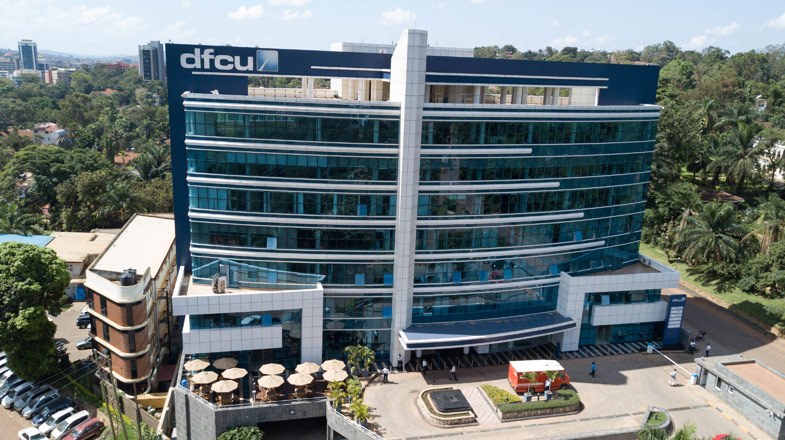Parliament’s Committee on Commissions, Statutory Authorities and State Enterprises (Cosase) in late December 2018 is yet to conclude its probe of Bank of Uganda senior staff (BoU) over the liquidation of seven commercial banks between 1993 and 2016.
The banks closed by BoU included Teefe Trust Bank, Greenland Bank, International Credit Bank, Cooperative Bank, National Bank of Commerce, Global Trust Bank Uganda (GTBU) and Crane Bank Limited (CBL). The closure of some of the banks has left doubt in the minds of Ugandans as to whether some of the BoU senior staff deserve the jobs they are holding.
Dfcu Bank of which BoU Staff Retirement Benefits Scheme holds shares, respectively bought GTBU in July 2014 and CBL in January 2017 after the former executive director of bank supervision Ms Justine Bagyenda approached Dfcu top managers over phone about the availability of the two banks for acquisition.
Dfcu Bank top managers including the former Managing Director Juma Kisaame are expected to appear before Cosase soon. The Dfcu executives are expected to tell the MPs how they came to acquire both GTBU and CBL given that the transactions are questionable as BoU top managers failed to present related documents and gave conflicting answers regarding the transactions.
For instance, during the probe of BoU, MPs learnt that Dr. William Kalema who was a board member of BoU was also a Board member of DFCU in 2014 when it took over GTBU. Ms Bagyenda is also said to have shared confidential information of GTBU with DFCU Bank top managers, which is against the country’s established banking regulations.
According to the committee members, these factors is present a conflict of interest situation in which BoU staff might have benefited at the expense of shareholders of GTBU who are now demanding for over Shs300 billion compensation on top of other costs.
During the probe, BoU senior staff were tasked by the MPs to explain the taxpayers’ Shs 478.8 billion they claim to have spent on CBL takeover but failed to account for the money which is not reflected on CBL accounts. BoU claims it spent the money as liquidity support and other costs despite CBL only needing Shs157 billion to stabilise. That money was not given and instead BoU sold CBL to Dcu Bank on credit at Shs200 billion as cited by the Auditor General John Muwanga’s special audit report of BoU on defunct banks.
According to the report released in late August 2018, DFCU Bank had paid about Shs98 billion of the Shs200 billion. Dfcu agreed with BOU to pay Shs200 billion liability within 30 months commencing October 1, 2017 and was to provide security in form of treasury bills (with less than 91 days maturity) on the completion date.
In March 2018 Dfcu Bank announced an impressive Shs127.6 billion net profit in the year ended 31 December 2017, up from Shs46.2bn registered in 2016. The huge Shs81.4 billion profit leap, came in the aftermath of the takeover of CBL.
Despite the transaction that saw Dfcu Bank take over CBL, the Auditor General established that there was no guidelines in place to guide the process. “I observed that there were no guidelines… or polices in place to guide the identification of the purchasers of defunct bank. There were also no guidelines to determine the procedures to be adopted by the Central Bank in the sale/transfer of assets and liabilities of the defunct banks to the identified purchaser.
Further, the Auditor General noted that BoU did not carry out a requisite valuation of assets and liabilities of GTBU and CBL resolved using the purchase and assumption arrangement at the time of signing the P&A. “In absence of the valuation and or documented evaluation of alternatives and assumptions used, I could not establish how the terms for the transfer of assets and liabilities in the P&A were determined,” he said.
Upon the acquisition of CBL, Dfcu Bank’s total assets increased to a record Shs3 trillion, up from Shs1.7 trillion in 2016 while t’s core capital increased to Shs362 billion in 2017, up from Shs 188 billion in 2016.
Former Crane Bank shareholders led by majority shareholder Sudhir Ruparelia and family have vowed to recover CBL, claiming their bank was sold to Dfcu Bank without considering their interests in accordance with the Financial Institutions Act.
Dfcu Bank is partly owned by the Commonwealth Development Corporation (CDC), a British government-owned company, together with Rabo Development from the Netherlands and NorFinance from Norway, who are shareholders in Arise B.V together with Norfund, a Norwegian government-owned Private Equity firm and FMO, the Dutch Development Bank.
Shareholding percentages:
Arise BV 58.71 per cent
CDC Group of the United Kingdom 9.97 per cent
National Social Security Fund (Uganda) 7.69 per cent
Kimberlite Frontier Africa Naster Fund 6.15 per cent
2 undisclosed Institutional Investors 3.22 per cent
SSB-Conrad N. Hilton Foundation 0.98 per cent
Vanderbilt University 0.87 per cent
Blakeney Management 0.63 per cent
Bank of Uganda Staff Retirement Benefits Scheme 0.59 per cent
Retail investors 11.19 per cent





